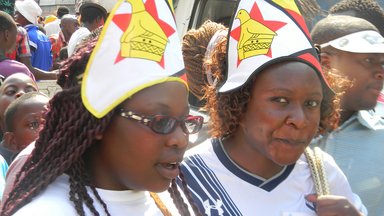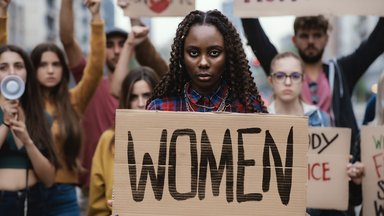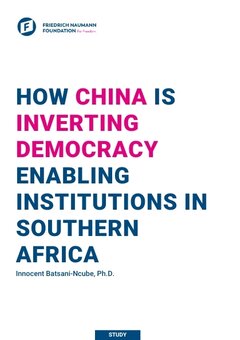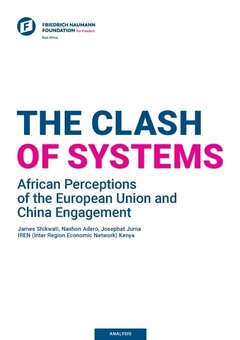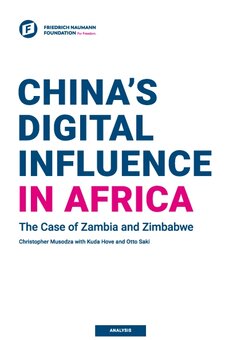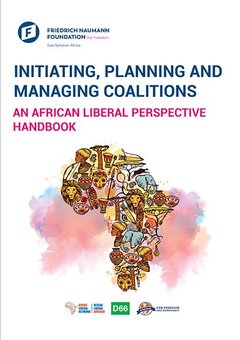Harare
The Friedrich Naumann Foundation for Freedom has been working in Zimbabwe since 1980. It has witnessed firsthand the dramatic changes that took place in Zimbabwe from the very beginning and supported the work of civil society organisations in times of crisis.
The work of the Foundation focuses on re-establishing the rule of law, liberal democracy and a free market economy, which have been virtually destroyed by the repressive regime currently in power.
The Friedrich Naumann Foundation for Freedom in Harare advocates the protection of the remaining democratic and constitutional liberties with the aim of expanding these once political change has taken place.
News
-
Africa and Europe at crossroads
Africa and Europe face a defining moment in global trade as rising US tariffs threaten to reshape economic relationships. Zimbabwe, as Chair of SADC, suspended all tariffs on American imports after Washington imposed an 18% duty on Zimbabwean goods. This diplomatic gesture highlights Africa’s lack of a unified trade response, exposing its industries to risk and weakening negotiating power. As the Trump Administration leans into protectionism and China deepens its influence across Africa, the European Union has a narrow window to offer a fair, rules-based alternative. A stronger Africa-Europe alliance could protect both regions from instability while offering real pathways for growth, cooperation, and prosperity. The current 90-day pause in US tariffs should not lull policymakers into silence — it is a moment for vision, urgency, and strategic partnership. Read the full analysis by Christopher Mugaga.
-
Zimbabwean ‘Golden Girl’ escapes to the IOC
Coventry’s appointment as President of the IOC presents a fresh opportunity for her to make a meaningful impact in global sports governance, this time within an institution that values expertise and structured decision-making. Unlike her constrained role in Zimbabwe’s government, the IOC provides her with a platform to advocate for athletes' rights, sports development, and governance reforms on an international scale. Her success in this role will depend not just on her experience but on how effectively she can navigate global sports politics, push for reforms, and champion the interests of athletes worldwide.
-
Anatomy of shrinking democratic space
Human rights violations in Zimbabwe have been going on for decades, with press freedom among the many casualties. The state continues to wield its apparatus to suppress the media. Heart and Soul TV (HSTV) broadcast editor Blessed Mhlanga’s pre-trial incarceration is quite chilling. It is not only a blatant violation of his fundamental rights, but also a disturbing reflection of the shrinking democractic space in Zimbabwe.
-
Working with Mhlanga and struggle for press freedom
The arrest of journalist Blessed Mhlanga is a chilling reminder of the fragility of press freedom in Zimbabwe. As I read the distressing news, my mind wandered back to the time I worked alongside him at HStv — a space that embodied journalistic integrity, courage, and an unwavering commitment to telling the truth. At HStv, Mhlanga is more than just a colleague, he is a force of nature. He possesses an unmatched zeal for uncovering the truth, often at great personal risk.
-
To the gallows no more
On the last day of 2024, Zimbabwe joined the ranks of nations that have consigned capital punishment to history. President Emmerson Mnangagwa, himself once a death row inmate for blowing up a train during Zimbabwe’s (then Rhodesia) fight for independence, signed the Death Penalty Abolition Act into law. For Zimbabwe and its patchy human rights track record this marks an important step. The act not only prohibits courts from imposing death sentences. It also mandates the resentencing of about 60 persons currently on death row.
-
Exclusion by inclusion: Zimbabwe’s quota system under scrutiny
By reserving 60 parliamentary seats for women through proportional representation, Zimbabwe’s constitutional quota system aimed to rectify gender disparities in political participation. Over a decade later, however, questions linger about its effectiveness. Critics argue the framework inadvertently perpetuates exclusion, with political parties sidelining women from key constituency races, and societal attitudes reinforcing entrenched barriers.
-
Women call for greater support in politics amid ongoing challenges
Zimbabwean women's participation in politics remains low, despite comprising 52% of the population—making them the largest demographic group. To address this, FNF Zimbabwe hosted a meeting for young and veteran women taking center stage in politics. The event, themed “History of Women’s Political Participation in Zimbabwe: A Reflection and Celebration,” provided a platform to discuss historical and current challenges in the political arena.
Social Media
Focus
Publications
Most popular
-
Agreement with the IMF - important milestone for Argentina's resurrection
Argentina -
“Fighting Starts When Talking Stops”: The South China Sea Conflict in the Light of a New US Foreign Policy
US Foreign Policy -
A Bold move or the end? The DA, the ANC, and the Value Added Tax (VAT) strains on the Government of National Unity
South Africa -
Stories of MENA: Sally Al-Naeem
Stories of MENA





